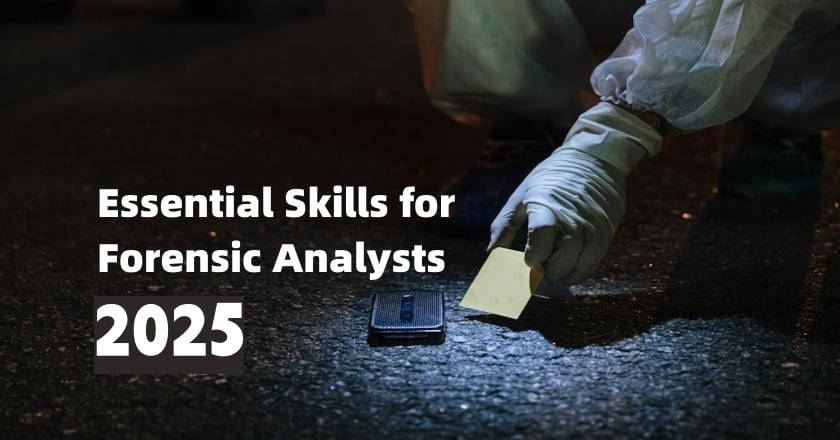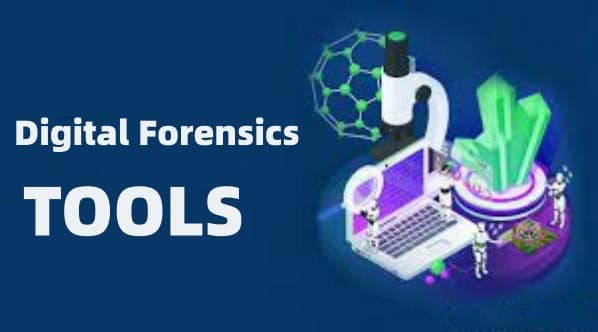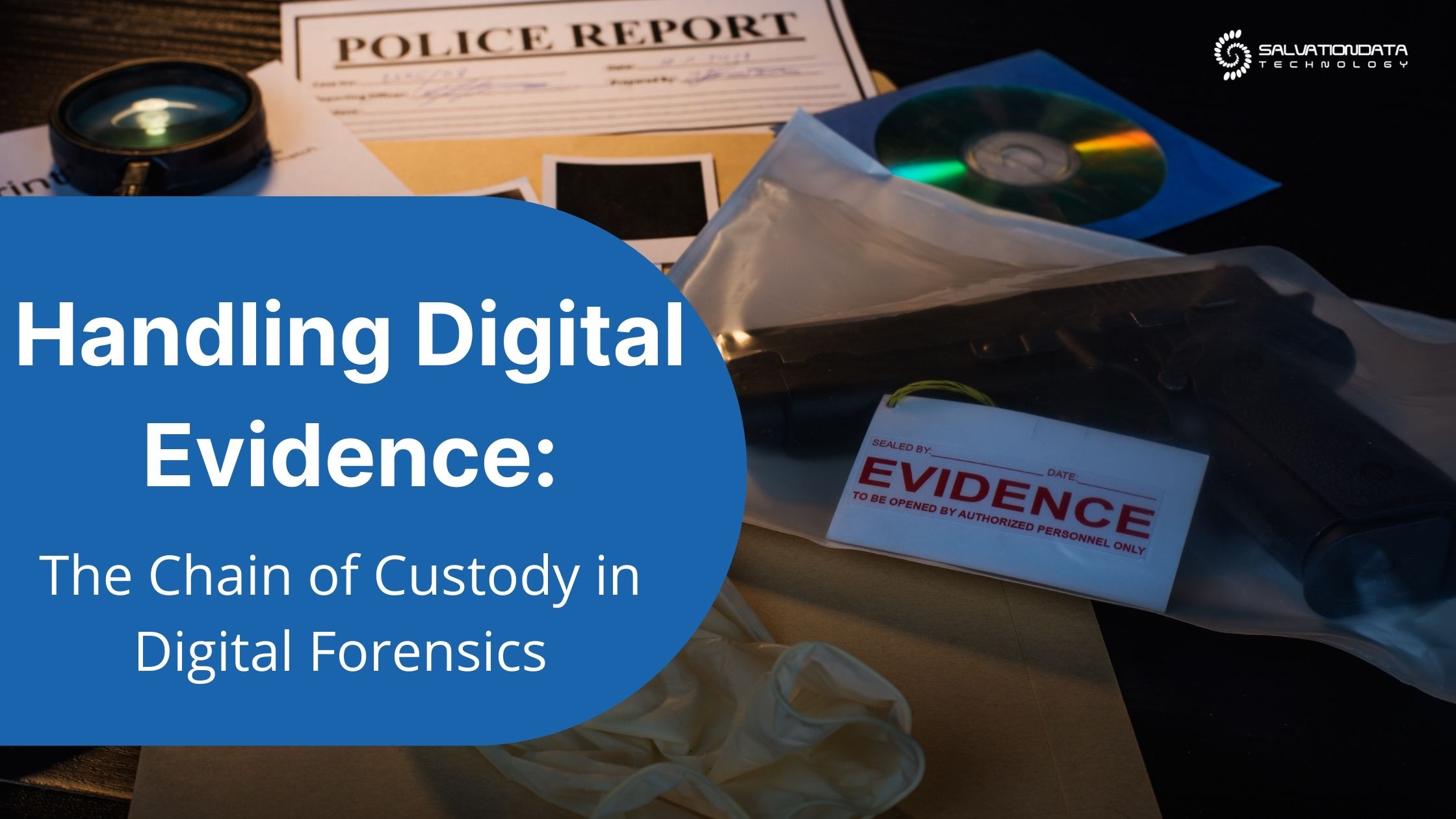Forensic analysts play a crucial role in solving crime cases by applying scientific methods to examine tangible evidence. With rapid technological advancements, the demand for skilled forensic experts has grown significantly. Their expertise is essential for tackling complex cases effectively. As a forensic analyst, your primary responsibilities include meticulously collecting, securely storing, and methodically analyzing data to ensure the integrity of investigations. Proficiency in technology and keen attention to detail are paramount in this role. Continuous learning and adaptation are crucial due to evolving forensic tools and methodologies. The skills of forensic analysts not only facilitate justice but also drive the advancement of digital forensics.
Essential Skills for Forensic Analysts in 2025

Hard Skills
1. Proficiency in Digital Forensics Knowledge
A digital forensic analyst must possess extensive knowledge of digital forensics, encompassing methods and tools essential for data analysis, including phone forensics, video forensics, database forensics, and data recovery. Additionally, proficiency in computer systems, networks, and various operating systems such as Windows, macOS, Linux, and mobile OS is crucial for comprehensive examination. With this information, they can effectively get proof from digital devices and analyse it, which is very important for solving complicated cases.
2. Cybersecurity Expertise
Ensuring the integrity and security of digital evidence during investigations requires comprehensive cybersecurity expertise. This includes maintaining rigorous standards in digital forensic techniques to safeguard data from online threats. Forensic analysts proficient in network analysis play a crucial role in identifying and tracing network intrusions, which is essential for understanding cyberattack methodologies.
3. Coding and Scripting
Forensic analysts need to be proficient in coding and scripting in order to automate processes and personalize tools two essential skills for effectively managing complicated information. The development of dfir tools and other specialized software used in the sector requires these kinds of technological expertise.
Soft Skills
1. Communication Skills
Effective communication is crucial for forensic analysts, particularly when engaging with law enforcement and other stakeholders. Clear and concise explanations of complex scientific findings are essential for ensuring understanding among individuals with varying levels of expertise. It is imperative that all parties comprehend and accurately interpret forensic study results. Establishing robust professional relationships allows analysts to integrate technical expertise with practical insights, enhancing their ability to solve crimes more effectively.
2. Attention to Detail
It is very important to pay close attention to details in forensic analysis, especially when working with private or complicated data. This level of care helps keep the chain of custody intact and makes sure the information is real.
3. Problem-Solving Abilities
To deal with the different problems that come up during forensic investigations, you need to be able to solve them well. This includes finding your way around complicated security systems and fixing problems that are hard to solve without knowing a lot about the hardware and software of digital forensic companies.
4. Critical Thinking
Forensic analysts rely heavily on critical thinking to analyze data and draw logical conclusions. Mastering this skill is crucial for career advancement and achieving a competitive forensic analyst salary.
5. Adhering to Ethical Standards in Investigations
One important part of investigative research is upholding moral norms. Analysts have to handle the complicated parts of their jobs with honesty and care, making sure that everything is done legally and that people’s right to privacy are observed. This dedication to ethics not only keeps the forensic field’s reputation high, but it also protects the evidence’s reliability and everyone’s rights.
Legal and Procedural Knowledge
1. Knowledge of Legal Procedures and Regulations
To be good at their job, forensic analysts need to know a lot about the laws and rules that apply to their area of expertise. This information makes sure that the legal rules are followed when collecting, handling, and analyzing digital evidence, which is very important for the evidence to be allowed in court. Analysts who know about these legal systems also don’t break privacy laws or other laws by accident while they’re doing their studies.
2. Chain of Custody
The evidence must be kept clean all the way from the time it is collected until it is shown in court. This is called the “chain of custody.” Real and computer proof is saved, moved, studied, and thrown away in a certain way. This process paperwork keeps track of who has it. Rules about the chain of control must be carefully followed to protect the evidence and keep it from being tampered with or poisoned, which could hurt the case in court.
3. Courtroom Testimony
There are times when forensic analysts need to show their work in court, so they need to know how to do it well. Analysts need to be able to break down complicated technical information in a way that judges, juries, and lawyers who may not have a technical background can understand. Proof that is clear and exact is important in court, but so is being able to confidently answer questions about the methods and results of the forensic analysis during cross-examination.
Evolving with the Field
1. Staying Updated with Trends
People who work in digital forensics need to keep up with the latest trends because the field changes so quickly. As new tools and methods come out, criminals also change with the times. They use more advanced ways to hide their activities. They need to always learn about the newest digital forensics tools and methods in order to keep up with these changes. This makes sure they can do their jobs well even when technology changes. It also helps them find and look at new types of proof.
2. Ongoing Education
There are not enough words to describe how important it is to keep learning about detective work. One way to tell how informed and committed an analyst is to their job is by how many certifications and degrees they have. Regular workshops, classes, and courses help professionals keep up with changes in the law and technology and get better at what they do. And it builds a culture of reliability and quality, which is very important in investigative work where a lot is at stake and the results can change the case in a big way.
Conclusion
As it turns out, being a forensic analyst is a tough and important job in the court system. These people can only do their jobs well if they are always willing to learn new things and have a good mix of hard and soft skills. A lot more forensic analysts will be needed around 2025. These people should know how to work with difficult digital data, as well as how the law works and how to work with others. They will always be needed to help fight digital crimes as long as they keep learning about new technologies, follow strict rules of ethics and process, and know a lot about digital forensics. Their knowledge not only helps people understand tough situations, but it also keeps the rules of justice safe in a world that is becoming more and more digital.




